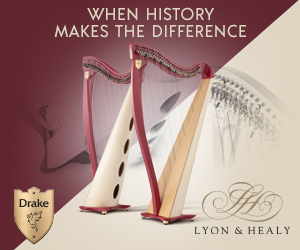Home › Forums › Forum Archives › Professional Harpists › Unplayable Harp Parts › Re: Unplayable Harp Parts
Katie- Your list is a good explanation of the major problems that harpists face with many harp parts. But I don’t think referring to that list is going to get composers to write better for the harp. I think that the common denominator to many badly or ineffective harp parts is that the composer was composing at the piano and heard harp sounds in his head but in fact was writing for the piano. There’s an issue of awkwardness that occurs when someone writes for an instrument that he doesn’t play. I think that this is less of an issue with instruments that play only one note at a time(trumpet, violin, etc.) but becomes a major problem with piano, organ, harp, etc.
There are two major things that can go wrong when a composer writes for the harp. One, that the notes that he writes are, for any of the reasons you mentioned above, simply unplayable. Two, that the composer wrote something in a range of the instrument that can’t be done. Composers simply can’t grasp the fact that each octave of the harp has its own characteristics. Things it can, and can’t do. You can’t play staccato in the 6th and 7th octaves. You can’t play leggato in the first octave or really in the second for that matter. Since we don’t have a sustain/damper pedal, you can’t write constantly repeated notes. In addition to all of that, you can’t have the harp playing when the whole orchestra is playing and expect it to be heard. The best thing a composer can do is consult with a harpist during the composing process so that he ends up writing a part that does what he intended it to do, and which is playable.






